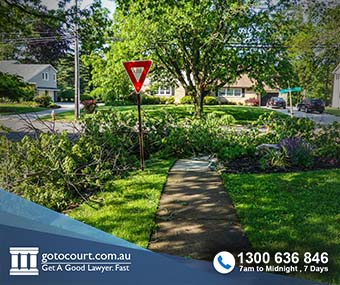Commercial Leases in ACT
Commercial leases are contracts to rent out premises for business purposes. In the ACT, there are generally two types of commercial leases. These are retail and non-retail leases. This article deals with commercial leases in the ACT.
Types of leases
In the ACT the Leases (Commercial and Retail) Act 2001 has a broader application than similar legislation found in other Australian jurisdictions. For example, while it excludes large premises (generally over 1000 sqm), it does include premises leased to associations, charities, child care centres, sports centres, art galleries and gardening supply centres. Importantly, it also includes premises under 200 sqm for any commercial purpose, not just retail.
Leases which fail outside the scope of the Leases (Commercial and Retail) Act 2001 are generally considered general commercial contracts, the terms of which are essentially up to the parties themselves.
Entering into a lease
Several things should be considered by both landlord and tenants at the negotiation/signing stage of a small commercial/retail lease:
- The landlord must provide the tenant with a copy of the proposed lease (in writing) as soon as practicable after entering into negotiations (unless the tenant provides the lease). Likewise, the landlord must provide a copy of the disclosure statement which is required under the legislation (contains details of outgoings etc) at least 14 days after the lease is entered into (the tenant and landlord sign the lease, or the tenant enters into possession of the premises, whichever is earlier).
- The tenant can waive this right having received a waiver certificate from a lawyer certifying that the tenant understands the nature of the time limit.
- The tenant must sign and return the disclosure statement on the earlier of the return of the signed lease or three months after the lease is entered into. If the disclosure statement is not properly given the tenant can terminate the lease by giving 14 days notice within 5 months of the lease starting. The landlord can then challenge the termination notice in the Magistrates Court on the basis of honest mistake and that the tenant has not suffered as a result. The Magistrates Court will then decide whether to affirm the termination notice or not.
- The lease may be registered under s 82 of the Land Titles Act 1925. The party that requests this must also pay the fee for doing so.
- The landlord cannot charge the tenant for lease preparation costs, as well as stamp duty and mortgagee’s consent fees. If the landlord does so, the tenant can claim this back from the landlord as a debt owing to the tenant.
- The bond cannot be more than three months rent and is held on trust for the tenant by the landlord. Significantly, unlike many other jurisdictions, the ACT legislation imposes a time limit on the landlord of 30 days at the end of the lease to return the bond to the tenant. The landlord cannot unreasonably refuse to accept a bank guarantee in lieu of a bond payment.
Lease provisions
Both the landlord and the tenant should be aware of prohibited clauses in leases. Should there be a prohibited clause in the lease, it will be void to the extent that it contradicts the Leases (Commercial and Retail) Act 2001.
Typical lease provisions relating to payments which may be sources of disputes are:
- Rent reviews must be included in the lease and can only be conducted no more than once every 12 months. The lease must specify how the rent is to be adjusted.
- Ratchet rent clauses are prohibited. Ratchet clauses prevent the rent from going down during the term of the tenancy. This is done in the Australian Capital Territory by prohibiting discretionary rent clauses which allow for one party to choose which method of rent review will be conducted, thereby giving that party the power to select the most profitable option.
- Land tax. Unlike most other states, the landlord can recover land tax from the tenant. GST can be recovered from either party.
- Outgoings. Any outgoings payable under the lease must be included in the disclosure statement. Any adjustments to the outgoings need to be made no longer than five months after the end of the relevant accounting period included in the lease.
- Capital expenditure: The landlord cannot recover capital costs, nor can the landlord recover any depreciation costs.
- Key money is prohibited under the legislation. Key money is money that the landlord accepts in return for granting a renewal, sublease, assignment etc to a tenant. It can be recovered by the tenant as a debt against the landlord.
- There are no set provisions for repairs and maintenance under the Leases (Commercial and Retail) Act 2001. Tenants and landlords should be clear on what is expected in the leases regarding repairs.
Renewals
The tenant can ask the landlord to tell the tenant whether the landlord will agree to renew the retail lease, and on what terms:
- For a lease longer than a year: between 6 and 12 months before the end of the lease
- For a lease less than a year: between 3 and 6 months before the end of the lease
The landlord must respond to the above within one month after having received the request. If the landlord does not do so, the period extends by one month until the landlord provides the notice.
Disputes
Dispute resolution procedures are contained in Part 14 of the Leases (Commercial and Retail) Act 2001. The Magistrates Court has the primary jurisdiction to hear and settle disputes between landlords and tenants, regardless of the amount in question. A case management hearing will be heard to determine the likelihood that the matter will resolve outside of court. If the matter is likely to settle, the court can refer the matter to alternative forms of dispute resolution.
These forms can include, but they are not limited to:
- supervised negotiation
- mediation and
- arbitration.
If the matter is unlikely to settle, the court will proceed to hear the dispute, with the aim of keeping the costs for the parties low and for the matter to be heard quickly. The Magistrates Court also has the power to transfer a matter to the Supreme Court if it sees fit.
Rental disputes are handled a little differently. If the parties cannot agree on the rent the Magistrates Court can refer the matter to mediation within 14 days of notifying the other party that they dispute the proposed figure. The Magistrates Court also has the power to refer the rental dispute matter including any matter that does not settle at mediation to an independent valuer. The valuer will report to the court within 28 days of being appointed.
If you require legal advice or representation in any legal matter, please contact Go To Court Lawyers.








